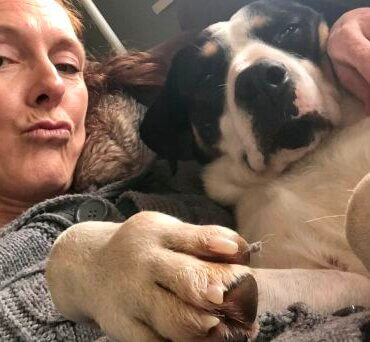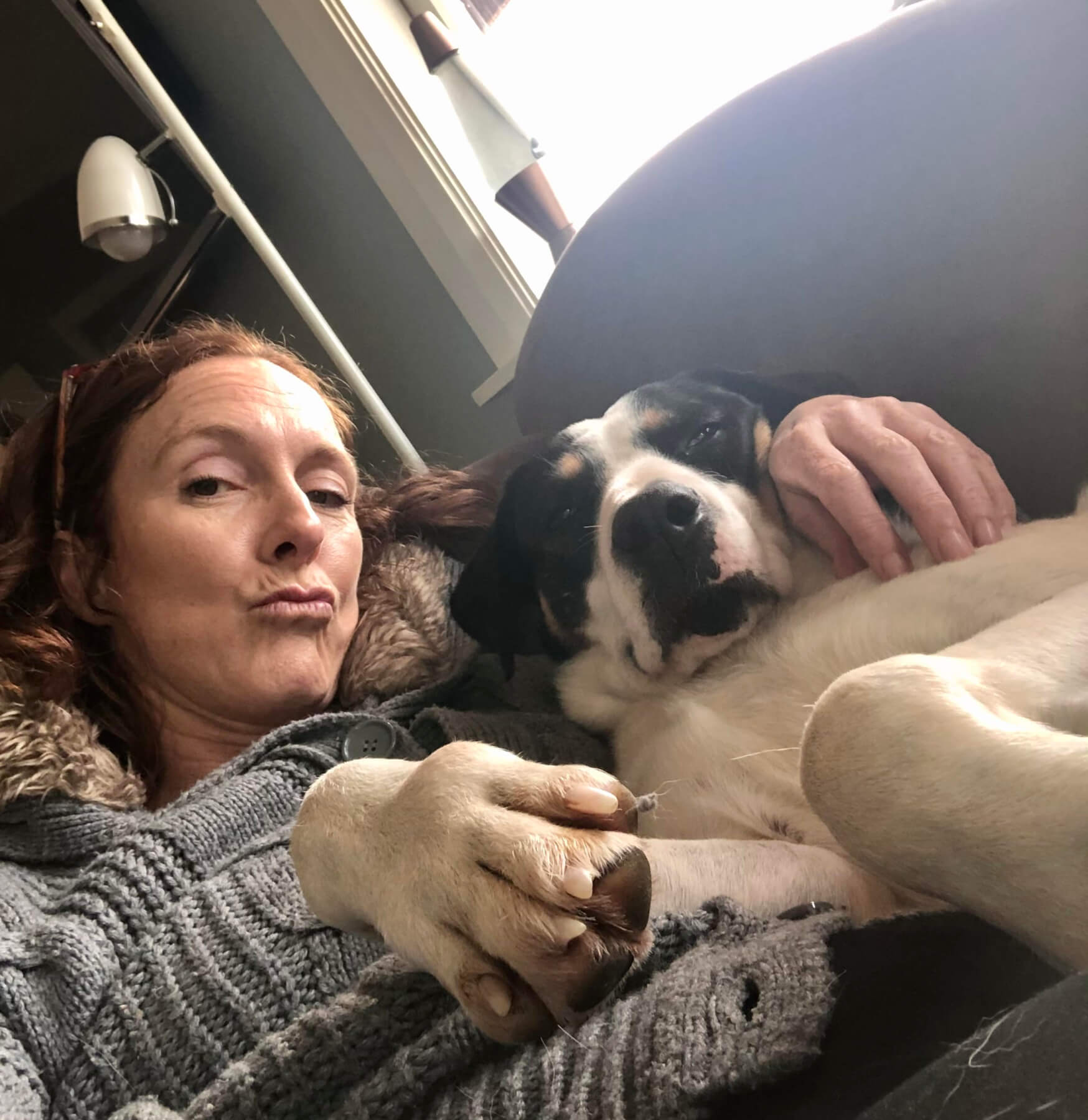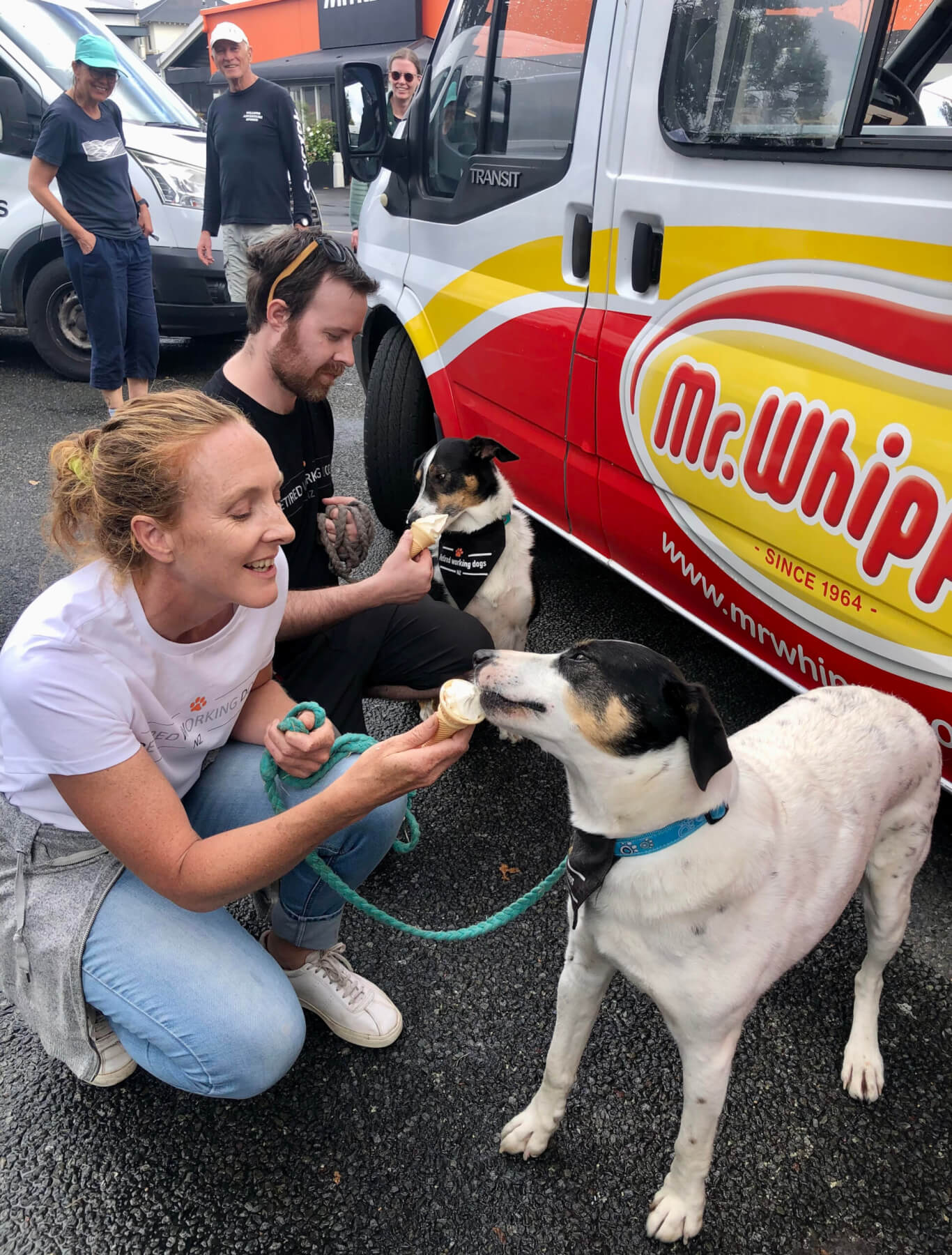
Marie-Claire Andrews with ex pig dog Eric
Some working dogs must retire due to age or injuries. Some just never were cut out for farm life. Paul Charman reports on what happens next.
Trustee Marie-Claire Andrews feeding Eric an ice cream after a long day fundraising for Retired Working Dogs at the Martinborough fair. Volunteer Sam and his Charlie in the pic
Retired Working Dogs was founded more than 10 years ago to foster and to help rehome retired or injured farm dogs.
It also finds homes for working breeds not suited to farm life.
With more than 40 dogs to rehome, the charity works with about 500 farmers a year to rehome working dogs on their behalf.
There is no cost to the farmer.
Trustee Marie-Claire Andrews said high on-farm costs had resulted in an increase in the number of dogs in need of new homes.
But why do working dogs have to retire?
“Some of the younger ones do so because, just like people, they are not cut out for the job,” she says.
“There may be no room for them on farm, where there are only a certain amount of kennels and work to get done. Farmers need active, committed tools to get the job done. So we’ll rehome those younger ones.
“Some of the mid-life ones have to retire after injuries. So we get them off farm to rehabilitate them and give them lives as pets. And them some are just too old to work anymore.
“I have adopted a pig dog named Eric, who was pretty much exhausted following 10 years of holding those pigs down. He’s the best pet I could imagine. We live in a tiny house, where he is totally relaxed, and he just fits himself in there perfectly.”
What sort of home does Retired Working Dogs look for?
“It depends on the dog as every dog is different,” says Andrews.
“The older dogs don’t need a massive amount of exercise so town houses are fine, as long as they can get out on the grass and meet other dogs and be socialised.
“Some of our dogs would still like to do a bit of work so lifestyle blocks are great, where there’s maybe a couple of sheep or cows to move around. If it just keeps them entertained and engaged that’s great.
“Some dogs are happy to be left alone as they are used to being crated, while others really do like the company of other humans or other dogs. People who work from home can be a really good fit.
“We match our applicants to our dogs very carefully to make sure it’s going to work out,” she says.
The adoption process begins with a visit to the Retired Working Dogs website where people can read about some of the dogs available and fill out an application.
A team of volunteers then reviews the application and may put the farmer directly in touch with the applicant.
If the dog has been placed in foster care to transition to a new home the volunteers arrange a meet and greet. This way the dog can go to the environment and meet other dogs if they are there.
The prospective new owner can then see for themselves how the dog relates to children, cats, and other animals. A month’s trail follows, after which the Retired Working Dogs trust will take the dog back if things don’t work out.
“But mostly the month’s trial is successful because we spend such a lot of time and energy making sure it will be a good fit in the first place.”
While most inquiries come from the North Island, the charity re-homes dogs all around the country.

Trustee Marie-Claire Andrews with ex pig dog Eric.









